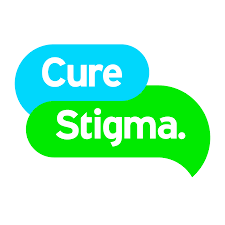Story 1: learning through presenting
The first presentation of the day was a student presenting a math project about Misleading Graphs. This student clearly had no fear about this process. Earlier in the year he got on stage for the mental health panel and had also signed up to have 4 panels in one day. His confidence was as high as his substance as he was able to describe multiple types of misleading graphs and the news sources that keep making them. Even on the best presentations we have to keep asking questions that push the student. It is pretty rare when a student demonstrates total mastery over the math, the context, and the strategies the used. In this case, he didn’t really understand all the features he used on google sheets, and one graph that he made stepped over the line of being ‘misleading’ to just being incorrect. Presentations are great places to talk about wrong answers because you can really walk through the student about why it would be wrong, and correct any misconceptions on the spot. Sometimes even the teachers have misconceptions. That’s a great thing about presentations is that there is space to really root out any misconceptions.
Story 2: a kid comes in and says “my teacher is in the hospital, so they sent me to you to approve my independent project.” Independent projects have become a thing of the past thanks to me and the rest of the team. We’ve asked that projects that to be presented to only come class projects to avoid getting things that aren’t on a high school level. However, someone gave him a green light but couldn’t finally approve the work that the student did, so I had to step in and help him finish. The paper was titled “Old Testatement.” I was worried.
His paper was actually super interesting! He asked two questions. Could Adam and Eve have populated the Earth in the 6000 years since being cast out of the garden of Eden, and could the the earth have been covered by flood of Noah’s ark (which we learned was originally told in the Epic of Gilgamesh) have actually covered the Earth? It was brilliant! He made an exponential model to describe the growth of human population from Adam and Eve’s 44 kids, and used the volume formula to find out that the earth would have required 3 times the amount currently in the oceans to be as high as it was described in the book.
The ingenuity and the curiosity on display wasn’t the best part. He actually became a different math learner during his presentation. He was vocal about how much he hated math class, and this disdain was what led his teacher to go along with this independent project idea. He presented with three other kids, and offered to go first because he felt his project was the “least worthy.” But when he finished the kids sitting next to him said he did such a good job that they didn’t know how to follow it. We also commented on how well he answered questions and explored his original problem. He left the room with his back straight and his head held high.
It was a great example of independent thinking and what is possible when kids are pursuing their own questions. Now the policy around independent projects seems like it should be reconsidered. Or, we should have more opportunities for kids to do modelling tasks where they pursue questions as opposed to doing it just because. Having a ‘mythbusters’ class where the kids try to model some historical story or other event could be really interesting. Kids could also try and compete with each other and come up with the best model possible.


